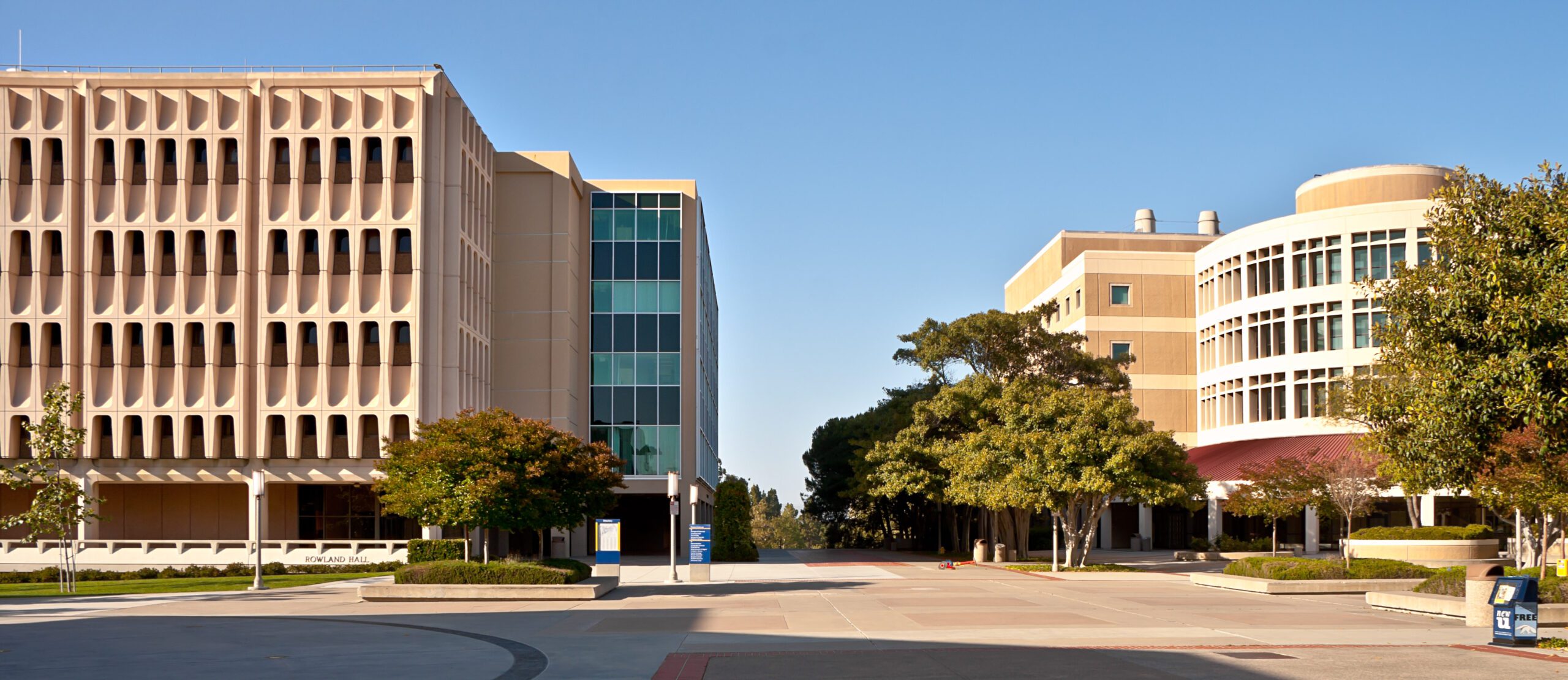If you’re searching for the best colleges for software engineering, this list of the top 10 schools known for their stellar programs is a great place to start. These colleges are ranked by their global scores, so you know you’re getting the best of the best:
- Stanford University - Global score: 98.0
- Massachusetts Institute of Technology (MIT) - Global score: 97.9
- University of California, Berkeley - Global score: 94.6
- Carnegie Mellon University - Global score: 86.3
- Georgia Institute of Technology - Global score: 80.0
- University of Illinois Urbana-Champaign - Global score: 77.9
- Boston University - Global score: 70.1
- Purdue University-Main Campus - Global score: 68.5
- University of California, Irvine - Global score: 67.4
- University of Miami - Global score: 58.6
This article is all about why these colleges are the top picks for software engineering. Each one stands out for its strong academics and connections to the industry, making sure students are set up for success.
And if the whole application process feels a bit overwhelming, EssayService is here to help with any essay you need, including those tricky college application essays. Whether you’re aiming for one of these top schools or just need some support along the way, we’ve got you covered.

Software Engineering Statistics
Let’s talk numbers for a minute. When it comes to top software engineering schools, understanding the broader picture of the field in the U.S. can really put things into perspective. Software engineering is in high demand, and that’s reflected in the stats.
Every year, about 30,000 students graduate with a degree in software engineering or something closely related, like computer science. This number has been on the rise as more people realize just how valuable a tech career can be. In 2021, over 130,000 students were enrolled in software engineering and related programs across the country.
What’s great is that the job growth in this area is also booming. The U.S. Bureau of Labor Statistics says we’re looking at a 25% jump in software developer jobs over the next decade (that's about 153,900 new jobs every year!). That’s way faster than most other careers, which makes sense, given how much tech is driving everything these days.
Graduates often find themselves working in areas like software development, systems engineering, and even newer fields like AI and cybersecurity. Many grads go on to work at big-name companies like Google, Microsoft, and Apple.
The pay is probably the top reason behind this major choice. Starting salaries for software engineering grads average around $80,000 a year, with plenty of room to grow as you gain experience (around $110,140 a year and up).
All this to say, getting a degree in software engineering from a top school is a solid move. The demand is there, and the opportunities are just waiting to be taken.
Massachusetts Institute of Technology (MIT)

At MIT, while there isn't a standalone undergraduate program specifically for software engineering, they do offer a comprehensive Computer Science and Engineering track within the Electrical Engineering and Computer Science (EECS) department.
MIT classes focus not just on theory but on building real-world applications, which means you could be developing software that's ready to deploy before you've even graduated. Collaborative projects with local tech companies and startups are part of the curriculum, giving students a feel for working in the industry.
Students work closely with expert faculty members who lead by example, often bringing their own projects into the classroom. This close student-faculty collaboration ensures that learning goes beyond textbooks, preparing students to think critically and creatively about solving technological challenges. Whether it’s artificial intelligence, cybersecurity, or data science, MIT students are trained to lead in their fields.
Hari Balakrishnan
Ph.D.
Fujitsu Professor in Electrical Engineering and Computer Science
Regina Barzilay
Ph.D.
School of Engineering Distinguished Professor of AI and Health
Michael Carbin
Ph.D.
Associate Professor in Electrical Engineering and Computer Science
Tamara Broderick
Ph.D.
Associate Professor of Electrical Engineering and Computer Science
University of California, Berkeley

UC Berkeley's EECS program offers a great blend of deep academic learning and practical experience, making it a solid choice for anyone interested in the world of tech. Situated in the Bay Area, students have the unique advantage of being close to Silicon Valley, where they can connect with some of the biggest tech companies and startups.
Students have access to diverse fields like Computer Science, Electrical Engineering and Computer Sciences (EECS), and Mechanical Engineering. They also get to work in top-notch research facilities such as the Lawrence Berkeley National Laboratory and the Berkeley Artificial Intelligence Research Lab.
This combination of thorough academic instruction and practical research experience prepares students not just to face the future but to shape it. With a vibrant campus life and a strong sense of community engagement, UC Berkeley is where education and innovation converge.
Pieter Abbeel
Ph.D.
Professor of Electrical Engineering and Computer Sciences
Raluca Ada Popa
Ph.D.
Associate Professor of Electrical Engineering and Computer Sciences
Alexei Efros
Ph.D.
Professor of Electrical Engineering and Computer Sciences
John Canny
Ph.D.
Professor of Electrical Engineering and Computer Sciences
Carnegie Mellon University (CMU)

Carnegie Mellon University’s software engineering degree program offers a well-rounded education with a strong emphasis on learning. Located in Pittsburgh, a city that's becoming a tech hub, CMU gives students plenty of chances to engage with cutting-edge technology and industry practices. The curriculum is designed to be challenging, covering areas like artificial intelligence, robotics, and human-computer interaction, making sure you pick up the skills you need to thrive in today’s tech world.
What makes CMU special is the opportunity to work on projects with real-world impact. Students get to collaborate with leading tech companies and work closely with faculty who are experts in their fields. This way, you’re not just learning theory — you’re seeing how it all works in practice. They also have the chance to participate in research through well-equipped labs and initiatives, such as the Robotics Institute and the Human-Computer Interaction Institute.
Plus, with strong industry connections, CMU offers plenty of opportunities for internships, networking, and job placement, helping students kickstart their careers.
David Garlan
Ph.D.
Professor of Computer Science
Jonathan Aldrich
Ph.D.
Professor of Computer Science
Claire Le Goues
Ph.D.
Associate Professor of Computer Science
Mary Shaw
Ph.D.
Alan J. Perlis University Professor of Computer Science
Georgia Institute of Technology (Georgia Tech)

If you’re into software engineering and want to be part of something truly innovative, Georgia Tech is an amazing place to be. The program goes beyond just teaching you how to code — it’s about learning to deal with complex problems from all angles. Students have access to advanced research facilities such as the Institute for Robotics and Intelligent Machines and the Center for Machine Learning.
Georgia Tech is also a popular choice because of its entrepreneurial energy coming from students who are excited about turning their ideas into reality. Plus, Atlanta’s growing tech scene means you’re in the perfect spot to connect with industry leaders and get experience that will set you up for whatever comes next in your career.
Alex Orso
Ph.D.
Professor of Computer Science
Mustafa Gokhan Sirer
Ph.D.
Associate Professor of Computer Science
Santosh Pande
Ph.D.
Professor of Computer Science
Ada Gavrilovska
Ph.D.
Associate Professor of Computer Science
Purdue University-Main Campus

Purdue University in West Lafayette, Indiana, has a strong reputation, especially in aerospace engineering —think major contributions to U.S. space missions— and in cybersecurity, where it’s all about tackling the latest digital threats. One of the cool things about Purdue is Discovery Park. This place is a huge hub where students and researchers get to work on solving big problems by bringing together science, technology, and industry.
Purdue offers a ton of research facilities like the Birck Nanotechnology Center, which focuses on nanoscale science and engineering, and the Lyles School of Civil Engineering, known for its work in sustainable infrastructure. Campus life at Purdue is dynamic and inclusive, with over 1,000 student clubs and an arts scene that keeps things interesting.
Karthik Ramani
Ph.D.
Professor of Mechanical Engineering
Juan Wachs
Ph.D.
Professor of Industrial Engineering
Sonia Fahmy
Ph.D.
Professor of Computer Science
Eugene Spafford
Ph.D.
Professor of Computer Science
University of California, Irvine (UC Irvine)

UC Irvine, set in sunny Orange County, California, is celebrated for its strength in science and engineering. It's especially well-regarded for fields like computer science, software engineering, and digital arts.
The Donald Bren School of Information and Computer Sciences is a highlight at UC Irvine, offering extensive programs in informatics and computer science. Here, software engineering degree students can get involved in research on topics ranging from artificial intelligence to network systems in well-equipped labs.
With tons of clubs and activities on campus, students can easily find their niche and build a community. Besides, the university's close proximity to major tech hubs like Silicon Valley and Los Angeles means students have access to some of the best internship and job opportunities in the tech world.
Michael Franz
Ph.D.
Professor of Computer Science
Paul Dourish
Ph.D.
Professor of Informatics
Crista Lopes
Ph.D.
Professor of Informatics
Gene Tsudik
Ph.D.
Distinguished Professor of Computer Science
University of Miami

Located in the sunny and vibrant Coral Gables, Florida, the University of Miami stands out with its strong focus on research and innovation, particularly in engineering and computing. This private university offers a rich blend of academic rigor and a dynamic, multicultural campus life, providing a well-rounded college experience.
The College of Engineering at the University of Miami is all about breaking down traditional boundaries through interdisciplinary learning. Programs like software engineering, biomedical engineering, and environmental engineering stand out, leveraging Miami's unique geographic and cultural advantages. State-of-the-art labs and hands-on learning opportunities are plentiful here, setting students up for success in highly competitive fields.
Kamal Premaratne
Ph.D.
Professor of Electrical and Computer Engineering
Shihab Asfour
Ph.D.
Professor of Industrial Engineering
Weizhao Zhao
Ph.D.
Professor of Computer Science
Diana Arboleda
Ph.D.
Associate Professor of Civil, Architectural, and Environmental Engineering
Stanford University

Stanford University stands out as a leading institution for a neuroscience major for various compelling reasons. One key factor is the exceptional faculty at Stanford, comprising renowned experts and researchers in the field. The program's diverse expertise and pioneering contributions to neuroscience provide students with a wealth of knowledge and mentorship.Stanford University is recognized for its world-class neurobiology program, characterized by a blend of foundational research and practical applications.
With a staff composed of leading experts, Stanford offers learners a unique and comprehensive understanding of the brain, supported by cutting-edge facilities and a commitment to interdisciplinary collaboration. The institution's location in Silicon Valley provides additional advantages, fostering connections with technology and healthcare industries. Stanford's adherence to both theoretical understanding and real-world impact makes it a top choice for students passionate about advancing neuroscience.
Katrin Andreasson
MD
Professor Of Neurology (Neurology Research Faculty)
Stephen A. Baccus
MD
Professor Of Neurobiology
Anne Brunet
PhD
Michele And Timothy Barakett Endowed Professor
Paul Buckmaster
DVM, PhD
Professor Of Comparative Medicine And Of Neurology
To Sum Up
If you’re on the hunt for the best schools for software engineering, you’re in luck.
Top contenders like Stanford University, Massachusetts Institute of Technology (MIT), Carnegie Mellon University (CMU), University of California, Berkeley, and Georgia Institute of Technology stand out in the field. Each of these institutions offers extensive research opportunities and strong industry connections that can set you up for success in the tech world.
Considering the competitive nature of admissions at these top universities, get a leg up with your application essays. EssayService can help you craft standout essays that showcase your potential and fit for these elite programs.
FAQs
Which University is the Best for Software Engineering?
Deciding which university is the best for software engineering depends on your personal and professional goals. Leading universities like Stanford University, Massachusetts Institute of Technology (MIT), and Carnegie Mellon University are highly acclaimed for their strong curriculums, innovative research, and close ties to the tech industry.
What Is the Best Degree for a Software Engineer?
For aspiring software engineers, a Bachelor’s degree in Software Engineering or Computer Science is typically the best choice. These programs provide a strong foundation in both theoretical concepts and practical skills that are crucial in the field. Advanced degrees like a Master’s or Ph.D. can further enhance a candidate's expertise and career prospects, especially in specialized areas.
Which College Has the Best Software Engineering Program?
Several colleges are renowned for their exemplary software engineering programs, including Stanford University, the Massachusetts Institute of Technology (MIT), and Carnegie Mellon University (CMU). Each offers a unique blend of comprehensive coursework, hands-on project experience, and access to state-of-the-art resources, making them top choices for students looking to excel in software engineering.
- World University Rankings 2024. (2024). Times Higher Education. - https://www.timeshighereducation.com/world-university-rankings/2024/world-ranking
- Fast Facts: Computer and Information Technology Occupations. (2024). National Center for Education Statistics. - https://nces.ed.gov/fastfacts/display.asp?id=37
- Metz, C. (2022, December 6). Computer Students Face a Challenging Job Market as Tech Layoffs Continue. The New York Times. - https://www.nytimes.com/2022/12/06/technology/computer-students-tech-jobs-layoffs.html
- Software Engineer Career Outlook. (2024). Jessup University Blog. - https://jessup.edu/blog/engineering-technology/software-engineer-career-outlook/
.webp)



